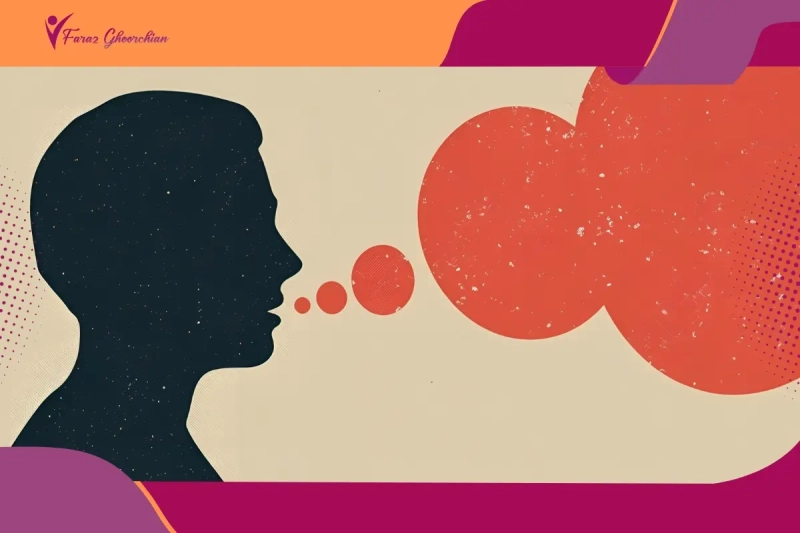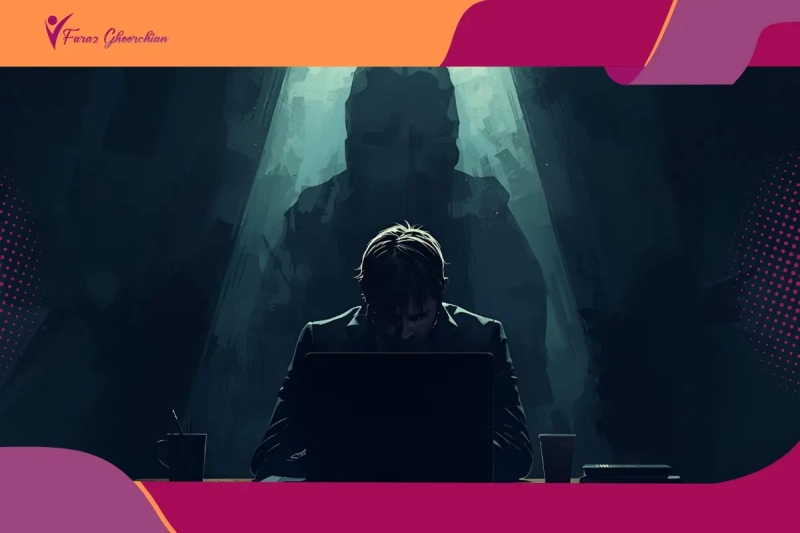- 1. Introduction: Why Choose a Porn-Free Lifestyle?
- 2. Understanding the Brain Effects of Porn
- 3. Recognizing Porn Triggers & Building Awareness
- 4. Essential Porn Addiction Recovery Steps
- 5. Mindfulness Techniques to Stop Porn
- 6. Digital Detox for Porn Recovery
- 7. Support Systems: Accountability Partners, Therapy, and Faith-Based Paths
- 8. Porn Recovery Success Stories & Staying Motivated
- 9. Rebuilding Intimacy and Self-Improvement After Quitting Porn
- 10. Talking to Teens About Porn & Creating a Family Porn-Free Culture
- 11. Conclusion
- 12. FAQs
Introduction: Why Choose a Porn-Free Lifestyle?
Sometimes a person doesn’t realize when things shift. Maybe it’s a morning where focus just isn’t there, or a quiet moment when old habits suddenly feel out of place. That’s usually when questions pop up about how to create a porn-free lifestyle and whether those tiny choices really matter. Some folks share stories about the brain effects of porn, while others just want to break free from routines that don’t feel good anymore. The first steps might involve experimenting with mindfulness techniques to stop porn or adjusting daily patterns. As people notice changes, even subtle ones, self-improvement after quitting porn starts to feel possible, and practical porn addiction recovery steps become part of a real-life journey rather than a distant idea.
Understanding the Brain Effects of Porn
A lot of people never give a second thought to the brain effects of porn until something feels off, like trouble focusing at work or losing interest in things that used to bring joy. Sometimes, it’s as simple as realizing that old routines no longer help with stress, but instead make everything feel more scattered. The question often surfaces: Is Watching Porn Really Harmful? For many, the answer becomes clearer through personal experience. Stories pop up about friends who tried mindfulness techniques to stop porn or took a break from screens and started to notice sharper thinking again. Concepts like rebooting brain from porn use sound technical. For most, though, it’s just about making small changes. Every bit of progress with self-improvement after quitting porn can spark hope that the brain and life can shift in a better direction.
Recognizing Porn Triggers & Building Awareness
It’s funny how porn triggers sneak up when nobody’s paying attention. Sometimes it’s just a lonely evening or the quiet hum of a phone nearby, making old routines feel almost automatic. For some, the pattern only shows up after talking honestly with a friend or noticing, halfway through a snack or scrolling session, that the urge is there. Exploring mindfulness techniques to stop porn isn’t about forcing change, but about getting curious. Bit by bit, people learn the value of avoiding porn triggers before they start. It helps to swap out small rituals and slowly break free from bad habits by building new daily habits to quit porn, even if progress is slow. Each little success makes self-control techniques for quitting porn more real, and over time, preventing porn relapse starts to feel less like an effort and more like second nature.
Essential Porn Addiction Recovery Steps
For most people, taking those first porn addiction recovery steps feels a bit uncertain. There’s no universal script, and sometimes what works for one person doesn’t work for the next. Still, over time, a few real-life approaches seem to help:
- Saying it out loud, maybe to a friend or just in a notebook, can make the problem feel less heavy
- Playing around with daily habits to quit porn like changing up evening routines, adding a walk, or putting the phone in another room
- Experimenting with mindfulness techniques to stop porn such as noticing small urges as they come up, rather than fighting them right away
- Making room for self-improvement after quitting porn by setting goals that feel doable, not overwhelming, and celebrating small victories
- Looking back every week or two to spot progress, and forgiving slip-ups as just part of being human
What makes the difference is staying curious, patient, and open to trying again.
Mindfulness Techniques to Stop Porn
Figuring out mindfulness techniques to stop porn usually feels clumsy at first. It isn’t about chasing perfection, but noticing what’s really happening, even in the middle of an urge. Here’s what some people actually try, whether it feels silly or not:
- Pausing long enough to ask what set off the feeling, sometimes out loud, sometimes just in their head
- Scribbling quick notes about porn triggers in a messy notebook or a phone app
- Stepping away from the screen for a few minutes, maybe to stretch, make tea, or just breathe
- Giving credit for tiny bits of self-improvement after quitting porn, like remembering to follow through on a new daily habit to quit porn
For those wondering how to stop wasting time on porn, this kind of awareness can be a quiet first step. There’s no magic fix, but paying this kind of attention can slowly shift the day in a better direction.
Digital Detox for Porn Recovery
Taking on a digital detox for porn recovery is rarely as simple as flipping a switch. Sometimes people only notice their patterns after another late night lost to scrolling or when those old porn triggers sneak up at random times. There are days when deleting certain apps or trying out new apps to quit porn feels pointless, and others when swapping screen time for a walk or a phone call brings a real sense of relief. Over weeks, these trial-and-error attempts at new daily habits to quit porn slowly begin to help with rebooting brain from porn use and can honestly improve focus without porn, even if it’s just a little. It’s not about big dramatic changes. It’s more about honest self-improvement after quitting porn and learning to stay steady, especially when staying motivated to quit porn feels difficult.
Support Systems: Accountability Partners, Therapy, and Faith-Based Paths
Nobody really figures out lasting change on their own. Most people, at some point, lean on an accountability partner for porn recovery. It could be a friend who just gets it, a sibling who doesn’t judge, or someone from a support group who’s walking the same path. Sometimes it’s just having another person ask, “How’s today going?” that helps make those new daily habits to quit porn stick. Others discover that the best therapy for porn addiction isn’t a magic fix but more like an honest conversation that slowly unravels old patterns and makes room for growth. Faith plays a big role for many too, with some choosing a Christian way to quit porn for its focus on hope and belonging rather than shame. However, someone goes about it, self-improvement after quitting porn becomes less about willpower and more about the small, steady support that makes every step forward possible.
Porn Recovery Success Stories & Staying Motivated
Many porn recovery success stories don’t sound dramatic when you hear them up close. Maybe it’s a person describing how they managed to improve focus without porn for a few hours and finally got through some work. Someone else might laugh about texting their accountability partner for porn recovery after a slip, or mention the relief of trying small self-control techniques for quitting porn instead of letting a craving spiral. There’s rarely a perfect finish line. Most people talk about slow progress, tough days, and the surprise of finding that staying motivated to quit porn sometimes means celebrating the tiniest steps. They’ll mention setbacks, but also the quiet boost that comes from simply noticing the changes, like better sleep or feeling a little lighter. Over time, these moments build into real self-improvement after quitting porn, and the effects of quitting porn show up where you least expect them. It might be more patience, a genuine laugh, or a new sense of calm.
Rebuilding Intimacy and Self-Improvement After Quitting Porn
Most people discover that rebuilding intimacy after porn addiction takes patience and a lot of ordinary moments. Maybe it’s saying yes to a walk after dinner, actually looking someone in the eye during a tough conversation, or setting the phone aside so there’s room to really listen. Small actions like these make it easier to reconnect and build trust again. For many, self improvement after quitting porn shows up in new routines. These might include sticking with daily habits to quit porn, trying out lifestyle changes to quit porn, or pausing to use self-control techniques for quitting porn when an urge hits. It’s also common to reach out to an accountability partner for porn recovery on a rough day or just to share a bit of progress. Over time, most people notice they improve focus without porn and feel more genuinely present in their relationships. What starts out feeling awkward becomes a new kind of closeness, built slowly, day by day.
Talking to Teens About Porn & Creating a Family Porn-Free Culture
The idea of talking to teens about porn can make even the most confident parents feel uncertain, but awkwardness is normal and honesty goes a long way. Most teens just want to know they can ask questions without being judged or dismissed. Sometimes, simply starting with a question like “What have you seen online?” opens the door. When parents share facts about the brain effects of porn in a matter-of-fact way, it’s easier for teens to listen and not shut down. Creating some new daily habits to quit porn as a family, like screen-free meals or tech breaks, helps everyone get involved. If setbacks happen, approaching preventing porn relapse as a learning moment keeps shame out of the picture. Over time, these steady, real conversations help build trust and make a porn-free lifestyle a shared value, not just a rule to follow.
Conclusion
For anyone working to build a porn-free lifestyle, it is rarely a straight path. Sometimes progress means slipping back, trying again, and figuring out what works through everyday experience. Many find that real change comes from the little things, like choosing simple daily habits to quit porn, reaching out to an accountability partner for porn recovery, or exploring new ways of self-improvement after quitting porn. With patience, people notice that self-control techniques for quitting porn start to feel more natural, and the effects of quitting porn show up quietly in moments of focus, calm, or genuine connection. Each honest effort brings life a little closer to the person they want to become.
FAQs
1- What are the first steps to quitting porn?
Starting with small changes, like adjusting daily habits to quit porn and recognizing personal triggers, helps build momentum. Reaching out to an accountability partner for porn recovery can also provide extra support.
2- Can mindfulness help with recovery?
Yes. Practicing mindfulness techniques to stop porn often makes cravings less overwhelming and encourages self-improvement after quitting porn through greater self-awareness.
3- How can families support teens?
Open conversations and routines that promote a porn-free lifestyle are key. Discuss the brain effects of porn honestly and teach self-control techniques for quitting porn for lasting change.
4- What if a relapse happens?
Relapse is common. Focus on preventing porn relapse with compassion, and keep building new habits over time. Each effort counts.











